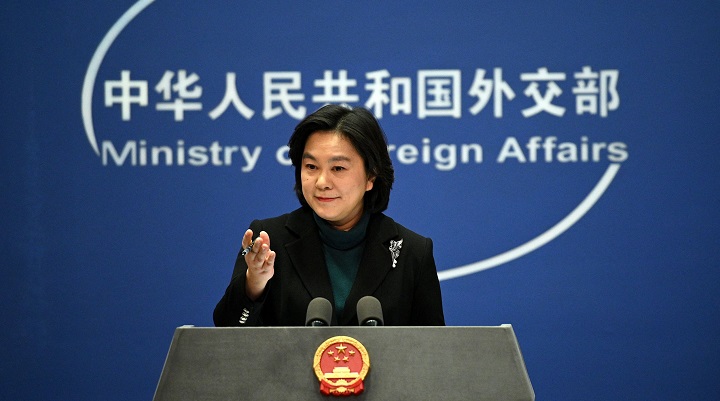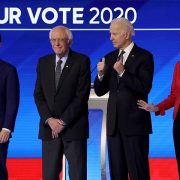
The following is an article written by China’s former ambassador to Ukraine, Gao Yusheng. The original and the English version by David Cowhig are provided below. Here are a few points about the significance of this article.
Ambassadors in China usually don’t publish without pre-clearing. Moreover, there are three messages implied here and reported as if speaking like a Chinese person:
- We were wrong; the Russian army’s lousy performance in Ukraine proves that post-soviet Russia didn’t really modernize; therefore, where are we Chinese on real modernization?
- Russia would like to stop the war, but its enemies (Ukraine, NATO, EU?) don’t want and fight may go as far as to cause the fall of Russia. We have to reach a ceasefire as soon as possible to prevent possible chaos at our borders.
- Beware rearmed Japan. Mao and Deng welcomed the US in Asia to put a lid on Japanese ambitions/fears. Now, this lid has been removed, and we are about to face a belligerent Tokyo, something we have dreaded for a long time.
In the meantime, Gao’s original article was removed from the official Chinese website but another one was published. It is less dramatic but equally recognized the need to move the target about Ukraine.
Yan Xuetong, dean of the Institute of International Relations at Tsinghua University, said the war has accelerated the reverse of globalization, which is not conducive to China’s trade.
He reportedly[1] argued that: “The war has had a big impact on international order, he said, as both Washington and Moscow do not follow international rules… This war has exacerbated the situation that the international community is even more non-compliant with international rules. Russia did not abide by the UN Charter when launching the war this time, and the US sanctions against it also did not comply with the rules.”
It all seems to indicate the beginning of some profound rethinking in China. It may end up in nothing, as it happened many times in Chinese history. Or it may have some outcome at the Party Congress this fall (Francesco Sisci).
Posted on 05/10/2022 by 高大伟 David Cowhig
Gao Yusheng (October 1947-) is a retired diplomat of the People’s Republic of China. In 2001 – 2003, he served as Ambassador of the People’s Republic of China to Turkmenistan, in 2003 – 2005, he served as Ambassador of the People’s Republic of China to Uzbekistan, and in 2005 -2007, as Ambassador of the People’s Republic of China to Ukraine. His last post was Deputy Secretary General of the Shanghai Cooperation Organization.
The Former PRC Ambassador to Ukraine Gao Yusheng: The Dynamics of the Russian-Ukrainian War and the Implications for the International Order
Former PRC Ambassador to Ukraine Gao Yusheng ⾼⽟⽣
The Impact of the Russian-Ukrainian War on the International Order
Recently, the Forum of Thirty on China’s International Finance and the Department of International Studies of the Chinese Academy of Social Sciences hosted an internal video seminar to discuss how the Russia-Ukraine crisis has changed the global financial landscape, its impact on China and how China should respond. Former Chinese Ambassador to Ukraine Mr. Gao Yuanchuan spoke at the seminar. The following is the text of his talk including edits he made after giving his talk.
The Russo-Ukrainian War is the most important international event of the post-Cold War period. It marks the end of the post-Cold War period and creates in a new international order.
Russia’s position in the Russia-Ukraine war has became increasingly passive and unfavorable. Its coming defeat is already clear
The main reasons why Russia is now heading towards defeat are:
- Russia has been declining ever since the collapse of the Soviet Union, a decline that is first of all a continuation of the pre-dissolution Soviet Union. It is also related to the failures of the internal and external policies of the Russian ruling clique. This process has been exacerbated by Western economic sanctions which have damaged sectors of the Russian economy. The so-called revival or revitalization of Russia under Putin’s leadership is false; it simply does not exist. Russia’s decline is evident in its economic, military, technological, political, and social spheres, and has had a serious negative impact on the Russian military and its war effort.
- The failure of the Russian blitzkrieg and the failure to achieve a quick victory signaled the beginning of the Russian defeat. The Russian military’s economic and financial strength, which are not commensurate with its status as a so-called military superpower, could not support a high-tech war costing hundreds of millions of dollars a day. The Russian army’s poverty-driven defeat was evident everywhere on the battlefield. Every day that the war is delayed is a heavy burden for Russia.
- Russian military and economic advantages over Ukraine have been offset by the resilience of Ukraine and the huge, sustained and effective aid provided to Ukraine. The generational differences between Russia and the U.S. and other NATO countries in the areas of weapons and technology, military concepts, and modes of warfare make the advantages and disadvantages of both sides even more pronounced.
- Modern wars are necessarily hybrid wars, covering military, economic, political, diplomatic, public opinion, propaganda, intelligence, and information. Russia is not only in a passive position on the battlefield, but has lost in other areas. This means that it is only a matter of time before Russia is finally. It is only a matter of time before Russia is finally defeated.
- Russia can no longer decide when and how the war will end. Russia is trying to end the war as soon as possible so it can hold on to what it has gained. This has failed. In this sense, Russia has lost its strategic leadership and initiative.
The next phase of the war is likely to be more violent and intense
The possibility of expansion and escalation cannot be ruled out. This is because: the objectives of the two sides are diametrically opposed. Ensuring its sovereignty over Crimea and eastern Ukraine is clearly the bottom line for the Russian side. Ukraine will not concede to Russia on the issue of sovereignty and territorial integrity and will be determined to recover eastern Ukraine and Crimea through war. The U.S., NATO and the EU have repeatedly affirmed their determination to defeat Putin.
U.S. Assistant to the President for National Security Affairs John Sully recently emphasized three goals for the U.S. to achieve in the Russia-Ukraine war.
- An independent and liberal Ukraine.
- A weakened and isolated Russia.
- A strong, united, and resolute West.
In order to achieve these goals, the United States and the NATO EU countries have not only significantly increased their assistance to Ukraine, but the United States also passed the first post-World War II Lend-Lease Act. The U.S. has internationalized and institutionalized its assistance to Ukraine through the 41st Defense Ministerial Conference. More importantly, the direct involvement of the U.S. and Britain in the war is deepening and expanding. All of this suggests that the war will be fought until Russia is defeated and punished.
The Russo-Ukrainian War and the New International Order
The Russo-Ukrainian War put an end to the Yalta system and the remnants of the Cold War, and the world began to move toward a new pattern and order of international relations. After the collapse of the Soviet Union, Russia inherited the Soviet Union’s status as a permanent member of the UN Security Council and a military superpower; Russia continued and retained much of the legacy and influence of the former Soviet Union in domestic politics, economy, society, culture and ideology; and Russian foreign policy was a blend of the foreign policies of the former Soviet Union and of the Tsarist Empire.
(1) The central and overriding direction of the Putin regime’s foreign policy is to regard the former Soviet Union as its exclusive sphere of influence and to restore the empire through the mechanism of integration in all spheres of that area under Russian domination
Russia has been focused and determined to achieve this goal. Russia has never really recognized the independence, sovereignty and territorial integrity of other former Soviet states, and has frequently violated their territoriality and sovereignty. The Russian-Ukrainian war has changed this situation dramatically in terms of peace and security in the Eurasian region. After the independence of Ukraine, especially since 2000, the two factions in the country, which had been essentially equally divided between the East and the West leaning factions which were elected to power alternately. Following the annexation of Crimea and the occupation of parts of eastern Ukraine in 2014, anti-Russian sentiment in Ukraine rose and pro-Russian forces began to shrink. Most of the people in Ukraine, not only in the east but also in the south, supported the country’s entry into the EU and NATO.
After the outbreak of the war, the situation in Ukraine has fundamentally changed. The country is united in its resistance to Russia and its salvation. It can be said that Russia has completely lost Ukraine. At the same time, the former Soviet Union, with the exception of white Russia, including the members of the Collective Security Treaty and the Eurasian Economic Union, have refused to support Russia. Russia’s defeat would leave it with no hope of rebuilding its old empire.
In order to gain the international status and influence of the Tsarist Empire or the former Soviet Union, break the existing international order, change the geopolitical map of the Eurasian continent and the world. Russia is obsessed with regrouping the former Soviet states and restoring its alliance or empire. This is in contrast to the U.S. position. This is a fundamental confrontation and conflict with the US. This is the main conflict and sticking point in Russia’s relations with the US.
To a large extent, the conflict between the two sides on this issue is a continuation and remnant of the Cold War between the U.S. and the U.S.S.R., and has a certain ideological color. It also has a certain ideological color. Through this war, the confrontation and struggle between Russia and the U.S. in the context of the American Empire ended in a total defeat for Russia. It has ended ended the post-Cold War or the continuation of the Cold War.
(2) Possible points of the evolution of the international order after the Russo-Ukrainian war
- Russia’s political, economic, military and diplomatic power will be significantly weakened and isolated. Russia will be significantly weakened, isolated and punished. Russia’s power will weaken even more. Russia may be expelled from some important international organizations and its international status will be significantly reduced. Russia’s international status will be significantly reduced.
- Ukraine would be removed from Russia’s orbit and sphere of influence (if Russia still has a sphere of influence) and become a member of the great European family. A member of the European family, i.e., a member of the European Union.
- Other former Soviet states may experience new and different degrees of de-Russianization. Some countries will move more actively to strengthen their ties with the West.
- Japan and Germany, while completely free from the constraints of the defeated countries of World War II and accelerating their armament development, will more actively strive for the status of political powers. Japan and Germany will be more active in seeking the status of political powers. However, they will not break away from the democratic camp, nor will they completely abandon the policy of peaceful development.
- The U.S. and other countries will push hard for substantive reform of the UN and other important international organizations. If they are blocked, they may also start a new one. Both may exclude some countries, such as Russia, by drawing ideological lines of so-called independence.
中国驻乌克兰前⼤使⾼⽟⽣:俄乌战争的⾛势和对国际秩序的影响
近⽇,中国国际⾦融30⼈论坛暨中国社科院国际研究学部主办了⼀次内部视频研讨会,集中讨论俄乌危机对全球⾦融格局带来哪些重⼤的变化?对于中国会产⽣什么影响?中国应该如何应对?中国驻乌克兰前⼤使⾼⽟⽣先⽣在研讨会上发⾔,以下是经他本⼈修改的发⾔内容。
俄乌战争是冷战后最重要的国际事件,它结束了后冷战时期,开启了新的国际秩序。
⼀、俄罗斯在这场战争中的态势⽇益被动和不利,已经显露败象。
俄⾛向失败的主要原因是:
第⼀,苏联解体后俄罗斯始终处于持续衰落的历史进程中,这种衰落⾸先是解体前的苏联衰落的继续,也与俄统治集团在内外政策上的失误有关。⻄⽅制裁⼜加剧加重了这个进程。所谓俄在普京领导下复兴或振兴是根本不存在的伪命题,俄的衰落表现在其经济、军事、科技、政治、社会等各个领域,对俄军及其战⼒也产⽣了严重的消极影响。
第⼆,俄闪电战的失败,未能速战速决预示着俄开始⾛向失败。与其所谓的军事超级⼤国地位极不相称的经济⼒和财⼒实在难以⽀撑⽇耗⼏亿美元的⾼科技战争。俄军因穷致败的窘况在战场上随处可⻅。战事每拖延⼀天对俄都是沉重的负担。
第三,俄在军事经济实⼒等⽅⾯对乌克兰的优势已经被乌的坚决顽强的抗击与⻄⽅国家对乌的巨⼤、持续和有效的援助所抵消。俄与美等北约国家在武器技术装备,军事理念和作战模式等领域的代差使双⽅的优劣之势更加突出。
第四,现代战争都必然是混合战争,涵盖了军事、经济、政治、外交、舆论、宣传、情报、信息等各领域。俄不仅在战场上处境被动,在其他领域都已经打输了。这就决定了俄最终被打败只是时间问题。
第五,这场战争何时结束,以什么⽅式结束已经由不得俄罗斯了。俄⼒图在确保主要既得成果的条件下尽快结束战争的愿望已经落空。从这个意义上来说,俄已失去了战略主导和主动权。
⼆、这场战争下⼀阶段的对抗⼒度和强度可能进⼀步提⾼。
不排除扩⼤和升级的可能性。这是因为:各⽅的⽬标截然相反,南辕北辙。确保克⾥⽶亚的归属和对乌东的占领显然是俄的底线。⽽乌克兰不会在主权和领⼟完整问题上向俄让步,决⼼通过战争收复乌东和克⾥⽶亚。美国、北约和欧盟⼀再申明打败普京的决⼼。
美总统国家安全事务助理沙利⽂不久前强调了美国在俄乌战争上要达到的三个⽬标:
第⼀,独⽴和⾃由的乌克兰;
第⼆,被削弱的和被孤⽴的俄罗斯;
第三,强⼤的、团结的和坚定的⻄⽅。
为了实现这些⽬标,美国和北约欧盟国家不仅显著加⼤了援乌⼒度,美国还在⼆战后⾸次通过了援乌租借法案。美国通过四⼗⼀国防⻓会议已使对乌克兰的援助国际化和机制化。更重要的是,美、英等国直接参与战争的程度在加深,范围在扩⼤。所有这些都表明,这场战争要打到俄罗斯战败并受到惩罚为⽌。
三、俄乌战争与新的国际秩序。
俄乌战争彻底终结了雅尔塔体系和冷战的残余,世界开始⾛向新的国际关系格局和秩序。苏联解体后俄罗斯继承了苏联的联合国安理会常任理事国和军事超级⼤国地位;俄在国内政治、经济、社会、⽂化和意识形态等⽅⾯继续和保留了⼤量前苏联的遗产和影响;俄对外政策是前苏联和沙皇帝国的混合体。
(⼀)普京政权对外政策的核⼼和⾸要⽅向就是把前苏联地区视为其独占势⼒范围,依托俄主宰的各领域⼀体化机制恢复帝国。为此俄⼝是⼼⾮,⻝⾔⽽肥,从未真正承认其他前苏联国家的独⽴,主权和领⼟完整,频繁侵犯它们的领⼟和主权。这是欧亚地区和平、安全俄乌战争极⼤地改变了这种状况。乌克兰独⽴后,特别是从2000年开始,乌国内主张向东和向⻄的两派原本⼤体上势均⼒敌,通过选举轮流执政。2014年俄兼并克⾥⽶亚和占领乌东后,乌国内反俄情绪上升,亲俄势⼒开始萎缩。⼤部分乌克兰⼈,不仅是⻄部的,也包括东部的,都⽀持国家加⼊欧盟和北约。
这次战争爆发后,乌克兰的情况已经发⽣了根本变化,乌国内不分党派,不分地区,不分阶层,团结⼀致,抗俄救国。可以说俄罗斯已经彻底失去了乌克兰。与此同时,前苏各国,除⽩俄罗斯外,包括集体安全条约和欧亚经济联盟成员国都拒绝挺俄。俄战败将使其彻底丧失重整旧⼭河,恢复帝国的可能。
为获得沙俄帝国或前苏联的国际地位后和影响⼒,打破现有的国际秩序,改变欧亚⼤陆和世界的地缘政治版图,俄对重新聚合前苏国家,恢复联盟或帝国抱有执着的追求。这与美国⻄⽅发⽣了根本的对⽴和冲突。这是俄与美⻄⽅关系的主要⽭盾和症结。
双⽅在这个问题上的⻆逐和⽃争在很⼤程度上是美苏冷战的继续和余⾳,也有⼀定的意识形态⾊彩。通过这场战争,俄与美国⻄⽅的这⼀对峙和争夺以俄彻底失败⽽告终。也就最终结束了后冷战或冷战的延续。
(⼆)俄乌战争后国际秩序演变的的⼏个可能的要点:
1、俄在政治、经济、军事、外交等⽅⾯会受到明显的削弱、孤⽴和惩罚。俄国⼒将更加衰弱。可能被逐出⼀些重要的国际组
织,国际地位显著降低。
2、乌克兰将脱离俄的轨道和势⼒范围(俄如果还有势⼒范围的话),成为欧洲⼤家庭的成员,即⻄⽅的的⼀员。
3、其他前苏国家可能出现新的不同程度的去俄化趋势,有些国家会更积极向⻄靠拢。
4、⽇本和德国在完全摆脱⼆战战败国的约束,加快发展军备的同时,会更积极地争取政治⼤国的地位。但不会脱离⻄⽅阵营,也不会完全背弃和平发展的⽅针。
5、美国和其他⻄⽅国家将⼤⼒推动联合国和其他重要国际组织的实质性改⾰,如改⾰受阻,也可能另起炉灶。两者都可能以所谓⺠主⾃由的意识形态划线,排斥俄等⼀些国家。





